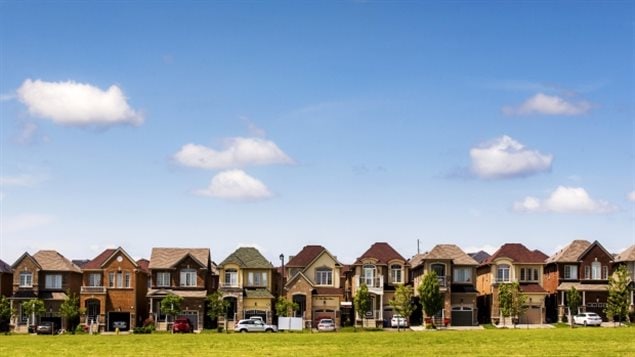Housing in Toronto, Canada’s largest city, has been soaring in price for years now, but the recent news that an average home can cost almost a million dollars, and more than 12 times the average household’s gross annual income, had politicians reacting.
Yesterday, federal Finance Minister Bill Morneau, and his provincial counterpart, Charles Sousa, met with the city’s mayor, John Tory to address the issues, and the reality that the spike in prices is spreading to other markets in southern Ontario.
On April 5th, the Toronto Real Estate Board said the average selling price for all properties in the Greater Toronto Area jumped by 33.2 per cent, from $688,011 (Cdn) in March 2016, to $916,567 (Cdn) in March 2017.
“It’s a broken system”
John Tory said “there are no simple answers” and the politicians agreed to meet quarterly, and to collect data on the effect of foreign and domestic speculators and the amount of vacant properties, among other variables often described as the cause of the soaring prices.
Professor James McKellar, of York Universty`s Schulich School of Business, described the so-called ‘summit’ as “a big nothing”. While he does acknowledge the need for more data, to properly assess the challenges, he says both the developers and the banks have plenty of information from which to draw conclusions.
He questions the approach to the housing market challenge. “It’s not necessarily financial…the trouble I have, again, is all of these people that we hear about meeting are financial people, but where’s municipal affairs in this debate?”
For McKellar, the major issue in Toronto is outdated zoning regulations. “The system by which we’re building our cities today and building housing that’s affordable, is fundamentally broken.”
Listen“We’ve got a hundred thousand people a year moving into the Toronto area… the GTA’s growing at roughly a million people every ten years and we’ve frozen those people out of existing neighbourhoods, McKellar says.

Toronto has zoning laws that haven’t changed much from what they were in 1949. “It’s almost impossible to get low-rise redevelopment except on a case-by-case basis that goes to the Ontario Municipal Board”, he says.
“Getting a permit in the city of Toronto is one of the most difficult, time-consuming, costly things you’ll ever go through”
“The success of cities is based on our ability to regenerate and rebuild”
McKellar maintains Toronto, through its land-use regulations, has promoted huge wealth transfers to existing homeowners. “We’re all sitting here, including myself, getting rich, because of what the city is doing, and if I’m a current landowner in the City of Toronto, I’m going to fight any change to re-zone because it’s making me a lot of money.”
New immigrants and young people are left with the choice between moving out into the suburbs and driving farther to work, or moving into a small condo.
“We haven’t found the solution to get people back into the city into these older neighbourhoods in developments that are going to change the neighbourhoods but they’re not going to negatively impact them.” he says.
“We haven’t give people the range of choices and there’s tremendous pressure building up to live in the city in other than a condo.”
McKellar cites the U.S. state of Massachusetts as an example of how things could change. There’s a law “If a municipality does not have, does not meet a certain percentage of homes that are within an affordable range, developers can come in and overrule all of the zoning, and get a single permit.”
“Getting a permit in the city of Toronto is one of the most difficult, time-consuming, costly things you’ll ever go through”
Along Toronto’s subway line, there are low-rise developments beginning to be built in the westbound direction, but McKellar points out that nothing has happened on the eastbound line. And, in the central part of the public transportation route, at the intersection of Yonge Street with Eglinton Avenue, the residents and the city fought long and hard against development.
“If you look at the studies, most of the development, more than 60 per cent of re-development in the City of Toronto, is not associated with transit stops.”
The Toronto Star newspaper recently published a piece by James McKellar in which he described Toronto as “the land of the rich and privileged, rigidly zoned at sufficiently low densities to protect the interests of those who can buy into an exclusive club called home ownership.”
He wrote: “Our economic future depends on our ability to house more than the urban elite. We must house, side by side, those upon whom we rely for our many services. Cities must serve everyone, at all ends of the spectrum.”
With files from the CBC and the Toronto Star







For reasons beyond our control, and for an undetermined period of time, our comment section is now closed. However, our social networks remain open to your contributions.